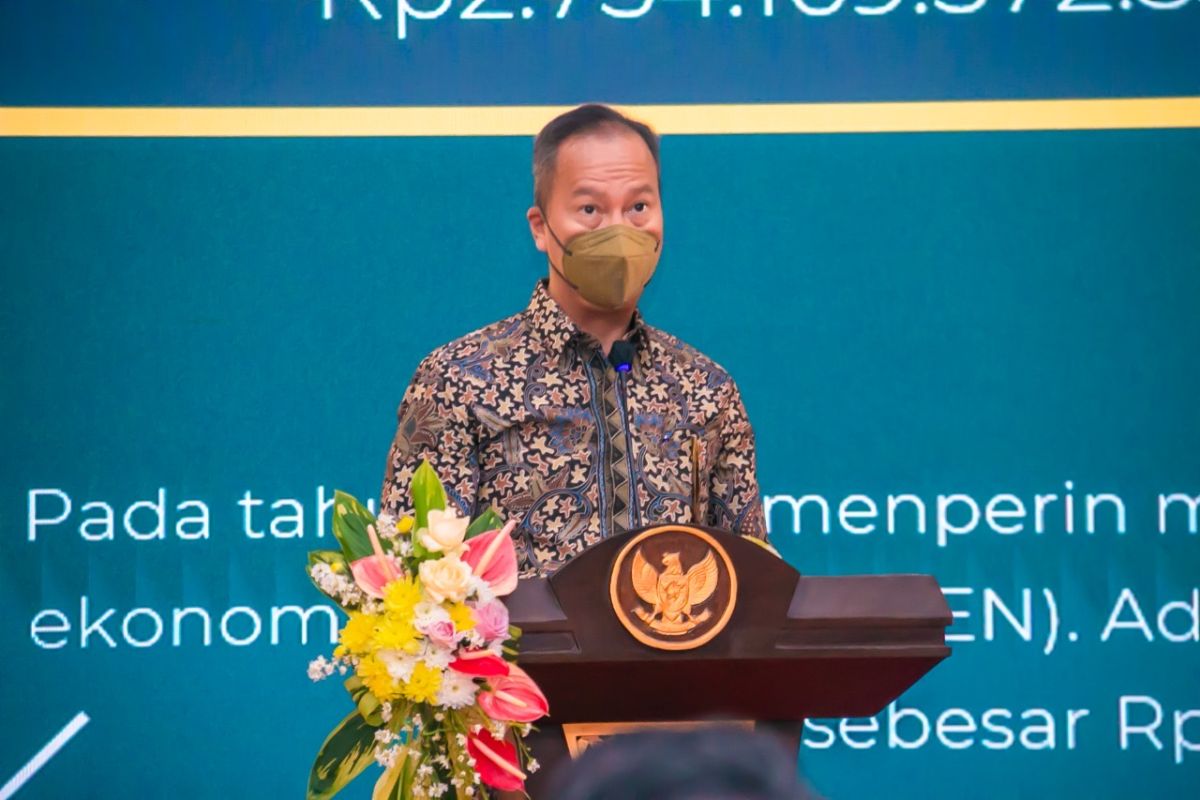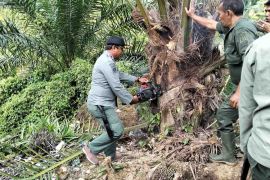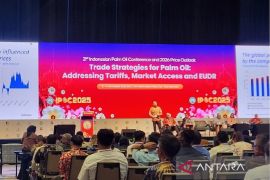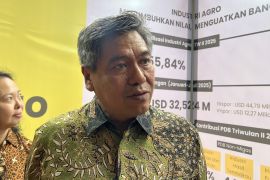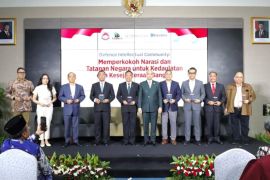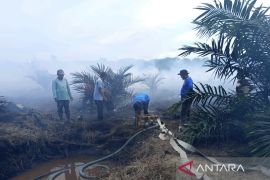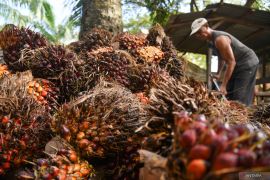The palm oil processing industry chain has also absorbed more than 5.2 million direct workers and supported the lives of up to 20 million peopleJakarta (ANTARA) - The Ministry of Industry will focus on implementing the downstream industry policy in a bid to increase the added value of domestic agro-based commodities, including palm oil.
"The palm oil processing industry chain has also absorbed more than 5.2 million direct workers and supported the lives of up to 20 million people," Industry Minister Agus Gumiwang Kartasasmita noted in a statement here, Monday.
The minister later explained that in 2021, palm product exports had reached 40.31 million tons, with a value of US$35.79 billion, an increase of 56.63 percent from the export value in 2020.
The palm oil processing industry is considered to play an important role in supporting the national economy. The industry is able to absorb products of smallholder farmers, improve the welfare of independent palm oil farmers, and increase foreign exchange earnings for the country, Kartasasmita added.
Activities of the palm oil processing industry also provide a multiplier effect, such as new palm-based industrial areas, such as in Dumai (Riau), Sei Mangkei, Kuala Tanjung (North Sumatra), Tarjun (East Kalimantan), and Bitung (North Sulawesi), as well as create new centers for economic growth.
Related news: Gov't resolute in anticipating food and energy crises: Trade Minister
In addition, the industry mobilizes productive activities for the palm oil plantation business, especially in the underdeveloped, frontier, and outermost (3T) regions, the minister stated.
Kartasasmita remarked that the palm oil sector, from upstream to downstream, had a broad business scope. Hence, coordination between ministries and institutions as well as relevant stakeholders was deemed necessary to formulate development policies.
"Coordination is the key to completing development of the palm oil sector in an integrated and comprehensive manner," he noted.
The Ministry of Industry will continue to encourage the downstream palm oil processing industry to produce various quality and competitive derivative products, he affirmed.
However, this step should be supported by the availability of raw materials and supported by the use of technology and latest innovations to help downstream products to be accepted by the global market.
Related news: Ministers must focus on public services during extraordinary events
“In 2011, we produced only 54 types of downstream palm oil products. Meanwhile, currently, we were able to produce 168 types of palm oil downstream products by the domestic industry," Kartasasmita pointed out.
These various palm oil derivative products are cooking oil, phytopharmaceuticals/nutrition, chemicals/oleochemicals, and renewable fuels/biodiesel FAME.
"Hence, the palm oil processing industry plays a strategic role in optimizing the absorption of Fresh Fruit Bunches (FFB)," he added.
He noted that the smooth operation of palm oil mills greatly influenced the activities of the integrated palm oil sector from upstream to downstream, including the expectation that palm oil mills could operate normally again.
Based on Law No. 39 of 2014, the palm oil extraction business, with KBLI 10431, as a producer for crude palm oil, is still under the authority of the Industry Ministry through the issuance of Integrated Plantation Processing Business Permits (IUP-P).
Related news: Red palm cooking oil cheaper than RBD palm oil: minister
Related news: Government to immediately build CPO factory in Bengkulu: Minister
Translator: Sella Panduarsa G, Resinta S
Editor: Fardah Assegaf
Copyright © ANTARA 2022
